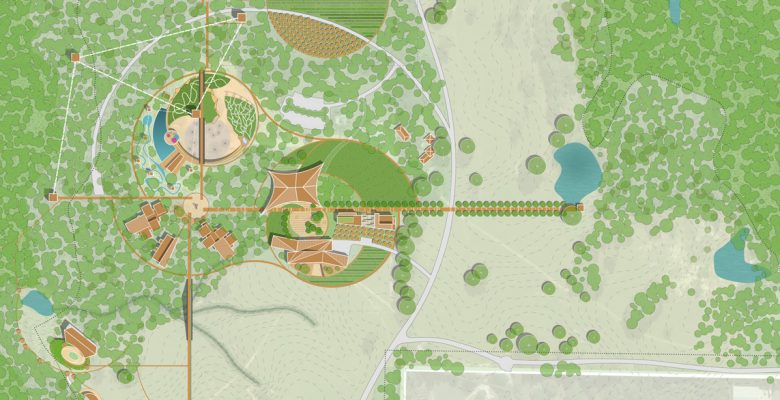Current research on the impacts of landscape architecture on children with Autism Spectrum Disorder (ASD) are surprisingly lacking, considering the believed benefits of the natural environment on individuals with special needs. This study examines how outdoor design elements benefit children with ASD and specifically, how these design criteria can be implemented to inform the design of a camp that serves children with ASD. In the study, the team used the following research methodology: a review and critique of established design criteria, an observation and analysis of built projects to evaluate experiential design criteria, and an application of design guidelines to a specific project. The results of the study were a refined set of design guidelines that creates a hierarchy of importance for the criteria. This design criteria enriched the conceptual design of a camp called Camp Southern Ground, by focusing the design on elements that appear to provide therapeutic benefits to children with ASD. While the complexity of ASD does not allow for simple answers, the article provides a framework to both inform better design for outdoor spaces for this unique population and expand the conversation beyond the limited research that exists today.
This article originally appeared in Vol 06.02 of the Perkins+Will Research Journal. CLICK HERE to see the whole article.

